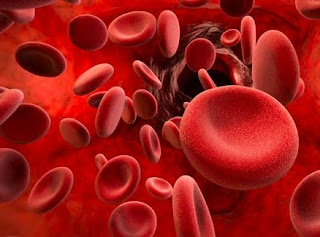 Blood thinners are medication usually recommended to people with diseases like DVT (Deep Vein Thrombosis known for blood clot in leg), PE (Pulmonary Embolism known for blood clot in lung), Atrial fibrillation and some heart diseases. Apart from medication that is prescribed by doctors, our life style also plays an important role in regulating the stats of blood. Those who take blood thinners get their blood tested at regular intervals. Blood INR (international normalized ratio) value is often measured to estimate the blood thickness.
Blood thinners are medication usually recommended to people with diseases like DVT (Deep Vein Thrombosis known for blood clot in leg), PE (Pulmonary Embolism known for blood clot in lung), Atrial fibrillation and some heart diseases. Apart from medication that is prescribed by doctors, our life style also plays an important role in regulating the stats of blood. Those who take blood thinners get their blood tested at regular intervals. Blood INR (international normalized ratio) value is often measured to estimate the blood thickness.Note: If you have ever had DVT then you can't donate blood.
Both over thickness of blood and over thinner blood is dangerous for human body. Thicker blood increases the chances of formation of blood clots, while over thin blood increases the risk of bleeding (both internal and external). Blood INR value of a healthy human being remains under 1.1, while those who depend on blood thinners should keep it between 2 to 3. Blood INR value of above 4.5 is considered too thin and increases your chances of bleeding.
What makes blood thicker ?
- Health of your liver and digestive system: Our liver is a major organ when it comes to digestion of food and extraction of vitamins and minerals from our diet. Proper balance of nutrients in our body is necessary to maintain the correct thickness of blood. More amount of heavy proteins in our blood can make our blood thicker. Deficiency of protein S or C can also make it thicker.
- Heredity: Sometimes inherited genetic disorders result in thicker blood. For example, protein-S deficiency may occur due to inherited genetic disorder from any one of the parents, which makes our blood thicker and cause DVT (Deep Vein Thrombosis).
- Too much RBC, WBC and Platelets: Too much blood in circulation can cause blood thickness. Similarly more amount of red blood cells (RBCs)(often caused by polycythemia vera), white blood cells (WBCs) and platelets in blood makes it thicker.
- Other Diseases: Some types of cancer and lupus can also make blood thicker.
- Mutations: mutations in factor V or prothrombin 20210 mutation can cause blood thickness.
Apart from medication there are several other factors that can control your blood thickness. If you are on blood thinners then you should take extra precaution about these factors.
Diet influence Blood Thickness
- Vitamin K : High amount of Vitamin K in our diet or supplements can make our blood thicker and lessen the effect of blood thinners. Similarly lack of Vitamin K in diet can boost the effect of blood thinners. So proper balance of Vitamin K in your diet is necessary. Vitamin K is found in broccoli, chickpeas, green tea, kale, turnip greens, soybeans and liver.
- Natural Blood thinners: Some food items act as natural anticoagulants thus increase the effect of blood thinners. Some of these food items are garlic, ginger, celery seed and aniseed.
- Vitamin E: It is a natural blood thinner. Oils of olive, soybean, corn and wheat germ are rich souurce of Vitamin E, hence should be consumed with caution. Other rich source of vitamin E are tomatoes, mangoes, spinach, almond, broccoli and sunflower seed.
Lifestyle
- Alcohol Intake: Usually people think that moderate amount of alcohol is good for heart as it saves from heart disease, which is achieved by blood-thinning effect of alcohol. But what most people don't know is that alcohol can interact with blood thinning medication and cause dangerous results, even if you are being moderate.
- Smoking : Smoking makes our blood thicker by damaging the tissues.
- Drinking water: Drinking adequate amount of water is also necessary to maintain correct thickness of blood. Don't think that drinking some extra water will make your blood thinner as your kidney will instantly send it to your urinary bladder. So just keep hydrated throughout the day.
Other Medications
- Estrogen-containing medications, such as birth control pills and hormone replacement therapy can make your blood thick.
- Some antibiotics and anti-fungal drugs increase the risk of bleeding.
- Some pain relievers and acid-reducer make your blood thinner.
Type of Blood Thinners
From over 5 decades people are using warfarin as blood thinner. A newer type of medication for the same purpose is direct oral anticoagulants (DOACs). DOACs users don't need to think much about food restrictions and regular blood tests, but their cost is upto 20 times higher and only a person with health kidney function can consume them. So if you want to use DOACs then consult a specialist regarding this matter. Still a number of people prefer warfarin due to lesser cost and lesser risk factor. Missing a warfarin dose does not posses any threat as it acts for longer duration, while missing a DOACs dose increases your stroke risk.If you are living with blood thinners then you must make some changes in your diet, lifestyle and other medication after consulting a specialist. Don't be your own doctor and get your blood regularly checked and get your reports examined.



Post a Comment
Post a Comment